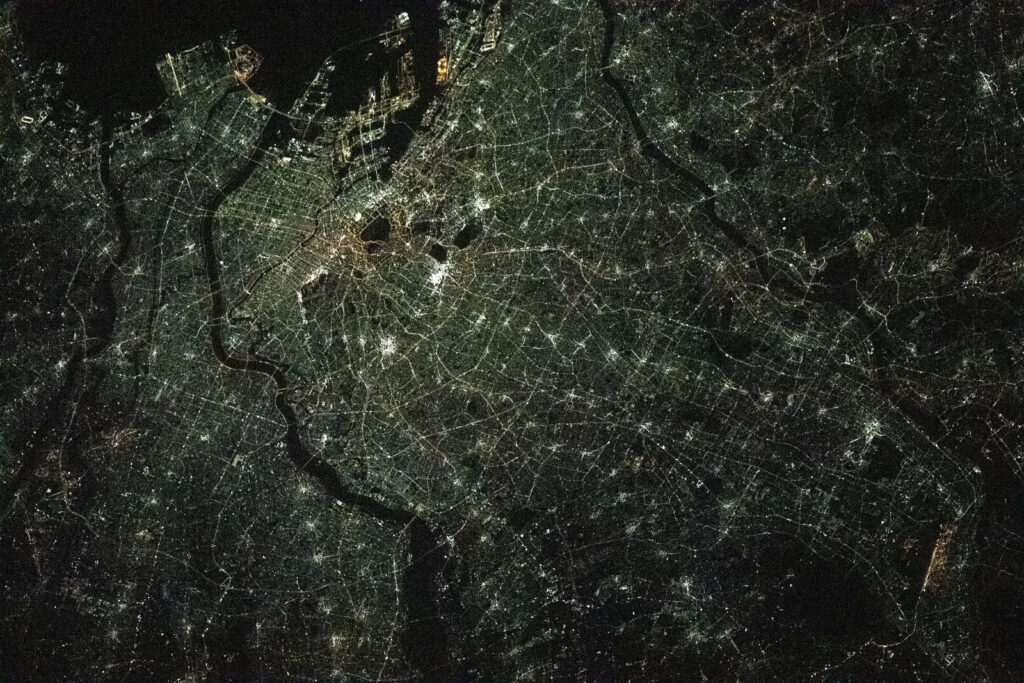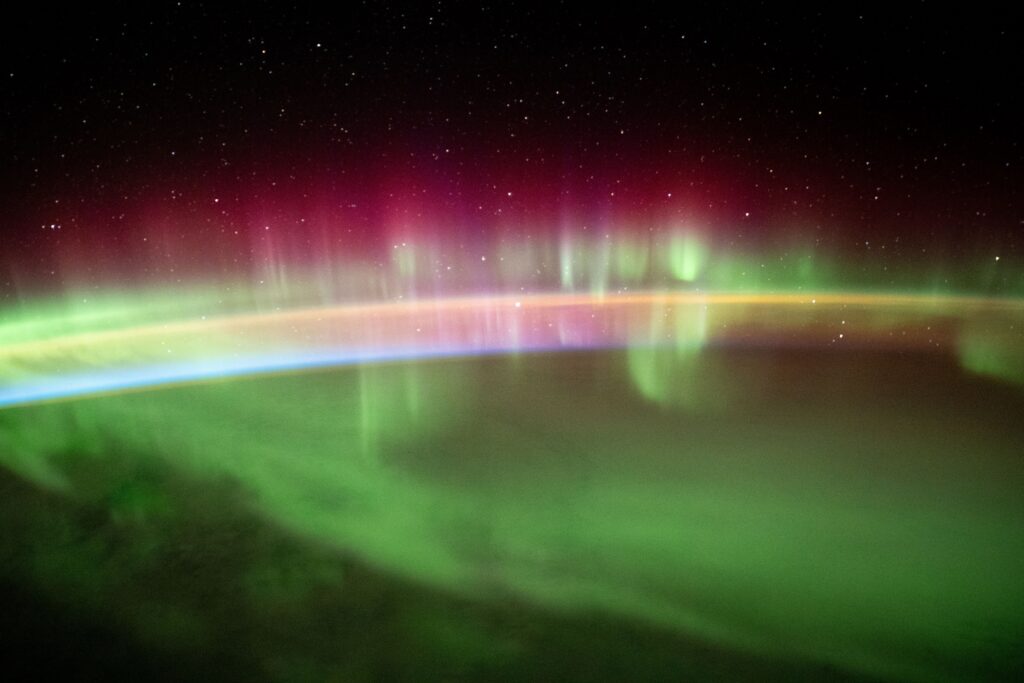I had a conversation recently where I realized suddenly that I need to clarify a position (both to you and to myself). A colleague and I were talking about the convergence of crises now arriving—climate change, mass refugee movements, pandemics, economic disruptions, and so on—and how to raise children through all this. It became very clear at that moment that I’m working hard to raise my son, Ayhan, to be a global leader—or at least have the ability to be so if he so chooses (with some regular—ok, insistent—prodding by his mother and me). I don’t want him to let someone else solve (or worsen) the crises that he has inherited.
And yet I also grapple with the strong possibility that it’s too late to solve anything; that by the time Ayhan is an adult, everyone will just be trying to survive. But it’s nonsense to believe that there won’t still be political leaders, economic leaders (of one sort or another), cultural and spiritual leaders, and so on.1 That the world won’t still be operating on a global level, at least to some degree. So I’m trying to prepare him to step into one of those leadership positions—like most parents. I guess I just never fully articulated this to myself. Even as I send Ayhan into the woods two days a week—to connect with nature and a specific place; learn respect for the planet and its beauty, power, and diversity; and to be skilled and self-confident enough to survive whatever the future brings—his learning languages, science, math, and socio-emotional skills is of critical importance, so that he’ll be prepared to be a global leader.2

How many leaders abound in just this small corner of Gaia? (Singapore at night via NASA)
Acting Globally
Perhaps that’s also why I’ve found it so difficult to shift my own focus to fighting local environmental battles. They seem small, trivial in the grand scheme of things. Of course, all small battles, when aggregated, are not inconsequential. And all battles have at one level or another a local component. But there’s something significantly different between fighting for a national carbon tax and fighting to ban plastic bags in one city, for example.3
Ironically, the latter may actually have more impact—at least in the short run—considering how little we’re willing to do to slow down climate change globally. But the latter is also a small-s solution—addressing one symptom of the deeper crisis of an overpopulated and still growing consumeristic human civilization directly in conflict with our planetary home, which both gives life and can take it away.
Now I acknowledge that this is somewhat at odds with the old eco-mantra “Think Global, Act Local.” I’m not sure who coined this, but I wouldn’t be surprised, as with the crying Indian, that it was actually industry.4
For those unfamiliar, the Indian—crying because he sees someone throw litter from his car window—was crafted by Keep America Beautiful, a front group for companies producing massive amounts of disposable waste (like Coca-Cola and Altria), the same companies who lobby hard to prevent increases in bottle deposits, stricter recycling laws, etc. By redirecting the focus to individuals’ behaviors, it helped deflect attention from industry, essentially giving companies a pass on making the bigger changes needed to stop environmental decline (like using reusable bottles, or better yet, not selling unhealthy, unsustainable products like soft drinks and cigarettes in the first place).
By focusing locally and leaving the global efforts to policymakers and professionalized nonprofit executives, there is the real risk of reduced ambition, excessive compromise, and even co-option of the very environmental guardians that should be fighting for Gaia, as explored in depth in the book Green, Inc. Again, that’s not to say everyone should fight globally. I’ve gotten to know many inspiring local change agents these past few years—and I am in awe of their commitment and perseverance. But from a Gaian perspective, I think it’s important to clarify that Gaianism is not about just acting locally, and is absolutely not about hunkering down in your town and getting ready for collapse—even if local action and local preparation are important parts of the philosophy. Perhaps the best way to look at it is with a bodily metaphor. A liver cell is working locally to clear bodily toxins but at the same time through that work is helping to sustain the entire body. Other cells, like immune cells, fight more globally. There is no one right way as long as all cells continue to work in service of the entire body.5
Thinking Locally
My fledgling attempt to act locally has been specifically to create a Gaian Guild (and encourage other Gaians to do so in other locales), which theoretically would do three things: first, the guilds would help instill practices (i.e. meditation and nature connection) that help prevent burnout and sustain mental wellbeing even if/as we see more of nature lost. Second, they would connect people in community, with hopes of supporting them so they feel energized to spend even more of their life energy in service of Gaia (globally, locally, or some weaving of both). And third, they would create a trusting network that could discuss how they are preparing in case systems break down in the short-term—creating resilience and mutual security within these local guilds.6
I don’t see the last happening immediately—though COVID and the political turmoil of the past four years show how fragile our system can be—but building trust takes time, so working toward this sooner rather than later makes sense (especially as no one can know when systems will fail).
Ultimately, the aspiration of Gaianism is to connect us with the living planetary system that we are part of and utterly dependent on. By its very nature, it is a globally-oriented philosophy. That does not mean one shouldn’t focus on healing and protect one’s local manifestation of Gaia, but it is important not to forget about the whole (and how your story connects to that whole) as one engages in those more local struggles.
So this is just a nudge to reflect on your own work and life and how you balance the global and the local. Obviously there is no one right answer. Some thrive at the local, others the global, others at the regional, and others, still, do great bouncing from one to the other to the other. But I think there is value in considering this honestly, and better understanding at what level you want to enact change, and then focusing there. As long as you’re acting at some level. After all, you owe that to Gaia.

Serve Gaia or Die (Gaia from Space via NASA)
Endnotes
1) There have been global leaders since human ‘civilization’ began—a reminder I also received while watching “Ancient Female Rulers,” from One Day University with my family this past week. And this will remain the case until we become a few scattered bands eking out survival. And perhaps even then. Once civilization is unlocked can it ever truly go away (other than when we go extinct)?
2) Of course, he may choose a different path, but I do feel it’s my duty to at least provide him with the skills to act globally if he so chooses.
3) Gone are many of the plastic bags in Connecticut—thanks in part to local activists here in Middletown. So I want to emphasize that I do not dismiss their work and dedication or any local activists’. I just struggle with how one balances these victories with the horrors unfolding at the global scale, and thus where to focus limited life energy.
4) According to Wikipedia, this was a sincere slogan, not industry-created. But perhaps it was promoted by industry to keep people focused on smaller issues?
5) In that metaphor, just hunkering down and preparing for collapse sounds kind of like what a cancer cell does.
6) More on guilds here, including a fourth reason: helping to connect children with the living Earth.





